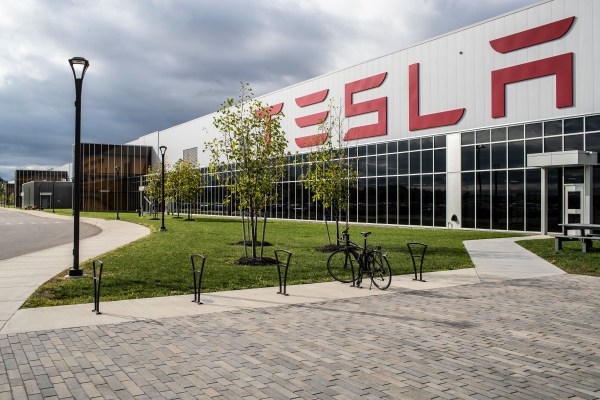Update: This article has been updated with Tesla’s response to allegations that it fired workers in retaliation for unionizing.
Tesla fired more than 30 employees who work at its factory in Buffalo, New York, in retaliation for union organizing, according to a complaint filed with the National Labor Relations Board.
The firings and complaint were first reported by Bloomberg.
Tesla Workers United, a group of Tesla employees who work as data labelers on the Autopilot team at the company’s Buffalo plant, announced Tuesday plans to organize a union. The workers said they’re organizing for job security as well as better pay and working conditions with Workers United, the same group that helped form the country’s first unionized Starbucks.
Dozens of those employees were fired Wednesday, a day after their union efforts became public. In the complaint, the workers said they were terminated in retaliation for union activity and to discourage union activity. The union organizers are “seeking injunctive relief to prevent irreparable destruction of employee rights resulting from Tesla’s unlawful conduct,” the complaint says.
Tesla has denied that it fired workers in retaliation for unionizing, and said its workers were let go after a routine performance review.
Tesla Workers United, in a statement emailed to TechCrunch, said it “wants to make their stance clear: These firings are unacceptable. The expectations required of us are unfair, unattainable, ambiguous and ever changing. For our CEO, Elon Musk, to fire 30 workers and announce his $2 billion charity donation on the same day is despicable. We stand as one.”
The workers said they also received an email Wednesday evening updating them on a new policy that prohibits employees from recording workplace meetings without all participants’ permission. Tesla Workers United said the policy violates federal labor law and also flouts New York’s one-party consent law to record conversations.
“We’re angry. This won’t slow us down. This won’t stop us. They want us to be scared, but I think they just started a stampede. We can do this. But I believe we will do this,” Sara Costantino, current Tesla employee and organizing committee member, said in a statement.
The workers trying to organize are part of the data annotation team working on Autopilot. Until last summer, Tesla had hundreds of data annotation employees working on the Autopilot team in San Mateo, California and Buffalo, New York. The San Mateo office had a headcount of 276. In June, the company laid off 195 staffers at the San Mateo office and shut down the location. About 81 workers were supposed to be relocated to another office.
The remaining data annotation employees, who label images to support the company’s Autopilot advanced driver assistance system, work at the Buffalo, New York plant.
Tesla’s response
On Thursday evening, Tesla published a blog post responding to what the company says are “false allegations.” Tesla disbanded its communications team in 2020, so this post is the first official response from the company in relation to its Buffalo workers trying to unionize.
Tesla denied that the employees were terminated in response to a new union campaign, but rather as part of a routine performance review.
“The most recent performance review cycle was from July 2022 through December 2022. On December 13th, 2022, managers across the company received a communication regarding the review schedule. This included information noting that exits for low performers would start the week of February 12, 2023,” reads the post.
Tesla said about 4% of its 675-employee Autopilot labeling team in Buffalo were exited as a result of the performance review, and that those employees had received prior feedback on their poor performance but never stepped up their game. The company had already identified the employees it wanted to let go on February 3, which Tesla says was well before the union campaign was announced.
“We became aware of organizing activities approximately 10 days later,” said the company.
Tesla also addressed criticisms of how it monitors labelers while they work, which some employees have said led them to skip bathroom breaks. The company said it monitors key strokes in order to calculate how long it takes to label an image and “improve the ease of use of our labeling software,” and that there is therefore nothing to be gained by delaying bathroom breaks.
Tesla Workers United did not respond in time to TechCrunch to confirm or deny this timeline or the existence of performance reviews.
